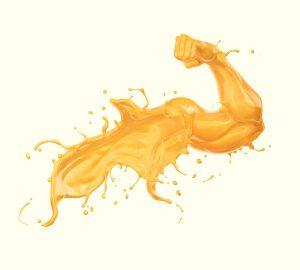The beverage industry continues to evolve, addressing the demand for beverages that are better for both consumers and the environment.
According to Australian Beverages Council CEO Geoff Parker, while beverage manufacturers have always been an innovative group, the last five or so years have showcased the industry at its finest.
“From introducing the latest manufacturing technology to portfolio renovation to reduce sugar, new product development and the latest in sustainability, Australia’s drinks makers are challenging the broader food and beverage sector in creativity, innovation and category growth,” he told us in the latest issue of Convenience World.
Achieving healthy sales
The health factor of beverages is showing no signs of slowing down, as consumers continue to show a concern for what they put into their bodies.
Mr Parker says that over the last decade, the industry has been working hard to play its part in tackling obesity and encourage healthier lifestyles. This has been done, he explains, by reducing sugar in many of “our favourite drinks” and providing a greater range of drinks without any sugar at all.
Looking to the future, Mr Parker expects greater investment in lower and no-sugar products as manufacturers establish themselves as diversified providers of healthy beverages.
 A functional future
A functional future
Carrying on from the health aspects of beverages, are its functional benefits.
“Functional beverages may not sound particularly exciting,” Mr Parker says, “but these products are anything but ordinary. Increasingly, the industry is developing low carbohydrate sports waters alongside energy drinks that have a range of new flavours to complement original tastes from leading manufacturers.
“Across functional beverages, more than $447.5 million is anticipated to be generated in 2019-20, increasing to an expected $528.4 million in 2024-25, according to IBISWorld [IBISWorld, Functional beverage production in Australia, August 2019]. In the period 2015 to 2020, growth notched up 3.3% per annum which is forecast to increase to 3.4% per annum during the period 2020 to 2025.”
Succeeding with sustainability
Another major concern for consumers is sustainability, which continues to be a contributing factor to their purchases. This factor has had a significant impact on the beverage category and how it operates.
According to Mr Parker, beverage companies have responded to the rise in sustainability by announcing some “ambitious and pioneering ways” to address community concerns and to turn sustainability into not just a unique selling point, but a part of a company’s – and brand’s – DNA.
“Today,” he says, “much of the industry is manufacturing containers from recycled material, some of which is being supplied through container deposit schemes. In many instances, the recycled content of the average plastic bottle is edging above 50 per cent which is great news and a step in the right direction to support governments in their respective broader waste management policies.
“While these initiatives demonstrate positive progress, clearly, there is more work to be done to increase the recycled content of all containers across the industry. The industry must continue to support this recycled content agenda and aim for 100 per cent in the years ahead, helped largely by a better functioning recyclable waste framework which is currently being developed.
“It’s likely we’ll also see some niche products – and some not so niche – in packaging made from bio-degradable materials. As manufacturers get to grips with the challenge of creating a more sustainable future, a portfolio packaging mix that involves many material types will almost certainly be part of the solution.”





